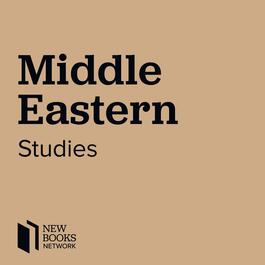
Anne K. Bang, "Zanzibari Muslim Moderns: Islamic Paths to Progress in the Interwar Period" (Oxford UP, 2024)
Zanzibari Muslim Moderns: Islamic Paths to Progress in the Interwar Period (Oxford UP, 2024) is a historical study of Zanzibar during the interwar years. This was a period marked by rapid intellectual and social change in the Muslim world, when ideas of Islamic progress and development were hotly debated. How did this process play out in Zanzibar? Based on a wide range of sources—Islamic and colonial, private and public—Anne K. Bang examines how these concepts were received and promoted on the island, arguing that a new ideal emerged in its intellectual arena: the Muslim modern. Tracing the influences that shaped the outlook of this new figure, Bang draws lines to Islamic modernists in the Middle East, to local Sufi teachings, and to the recently founded state of Saudi Arabia. She presents the activities of the Muslim modern in the colonial employment system, as a contributor to international debates, as an activist in the community, and more. She also explores the formation of numerous faith-based associations during this period, as well as the views of the Muslim modern on everything from funerary practices and Mawlid celebrations to reading habits. A recurring theme throughout is the question with which many Muslim moderns were confronted: who should implement development? And for whom? Anne K. Bang is Professor of African Islamic History at the University of Bergen. She has published widely on Islamic intellectual exchanges in the Indian Ocean, and particularly on East Africa. She has also led several projects to bring the scriptural sources of this history to wider attention. Ahmed Y. AlMaazmi is an Emirati historian who focuses on the intersection of occultism and imperialism in the Indian Ocean world. After completing his studies in cultural anthropology at Rutgers University as a Fulbright fellow, he pursued a PhD in Near Eastern Studies at Princeton University. His dissertation, An Enchanted Sea: Occultism and Imperialism in the Early Modern Indian Ocean World, 1450-1750, examines the connected histories of occult sciences and empire-building across Arabia, East Africa, and South Asia, told through intellectual projects that accompanied the rise of the Omani Yaʿrubī Empire and its diasporic communities. His recent work includes the article, “I Authored This Book in the Absence of My Slave: Enslaved East Africans and the Production of Occult Knowledge across the Omani Empire,” published in Monsoon Journal. Learn more about your ad choices. Visit megaphone.fm/adchoices Support our show by becoming a premium member! https://newbooksnetwork.supportingcast.fm/middle-eastern-studies
From "New Books in Middle Eastern Studies"


Comments
Add comment Feedback